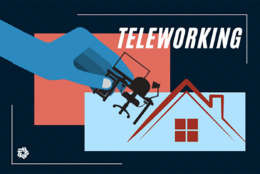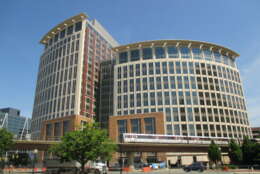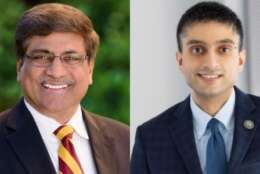National Science Foundation
-
The National Science Foundation and the American Federation of Government Employees signed a four-year collective bargaining agreement that will add more telework, create a student loan repayment program, expand the “after hours” program and more.
December 06, 2022 -
The National Science Foundation has joined up with the Czech Science Foundation, the NSF counterpart in the Czech Republic and the two agencies are funding research into how to produce gamma rays with high-powered lasers.
September 08, 2022 -
The Senate will continue debating the Chips Bill this week. Find out more about that and other important happenings on Capitol Hill, Tom Temin talked with Bloomberg Government deputy news director Loren Duggan.
July 25, 2022 -
Employee satisfaction in the Best Places to Work in the Federal Government rankings took a plunge, but some agencies still found success.
July 13, 2022 -
Employee engagement and satisfaction dropped by 4.5 points in the Partnership for Public Service’s 2021 “Best Places to Work in the Federal Government” rankings.
July 13, 2022 -
Congress is considering legislation that would designate economic development funding to new tech hubs located all over the country. That's part of an emerging trend in how the federal government approaches innovation funding.
June 16, 2022 -
A White House-led task force is outlining its vision to make artificial intelligence research tools and data more accessible to a broader community of researchers.
May 27, 2022 -
Young, top-notch scientists have a shot at recognition from the National Science Foundation. Each year the NSF names an early-career scientist to its Alan T. Waterman award.
May 24, 2022 -
In today's Federal Newscast, House lawmakers want to change how cost-of-living adjustments, or COLAs, are calculated for many federal retirees.
May 17, 2022 -
The community of inspectors general lost one of its leading lights recently with the death of former Interior Department IG Earl Devaney.
April 27, 2022 -
Over 90 agencies release 300 new actions aiming to expand opportunities in federal services for disadvantaged communities.
April 14, 2022 -
To prepare for the next era of great power competition, experts urge the federal government to increase its level of spending on basic R&D.
April 12, 2022 -
The National Science Foundation is nearly done deploying four city-scale wireless testbeds at locations across the country, giving researchers a chance to test out a range of radio-frequency innovations in environments ranging from dense urban areas to rural settings.
April 12, 2022 -
NSF Director Sethuraman Panchanathan and assistant director for Technology, Innovation and Partnerships Erwin Gianchandani joined the Federal Drive with Tom Temin.
April 01, 2022 -
Invasion prompts all-of-government response, but the effects are personal, too.
February 25, 2022












